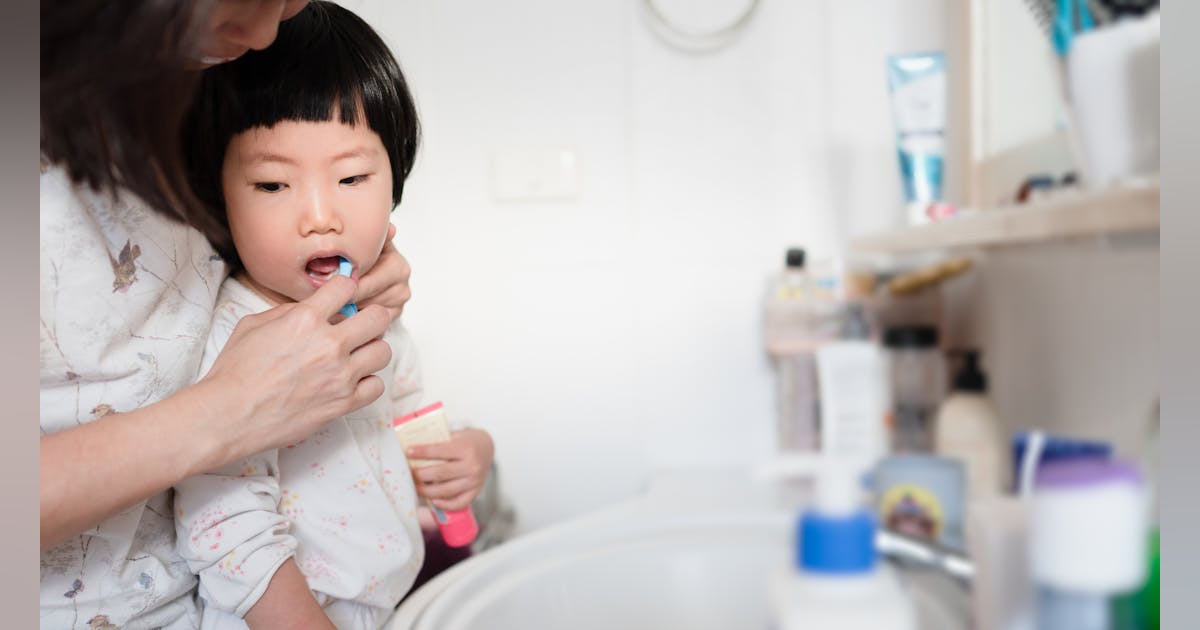However, you may not always know how to lay the foundation for a healthy life for your child. When you learn about the connection between children’s oral care and overall health, you can proactively address health issues by implementing an oral care plan from the first months of your child’s life. child.
According to the American Academy of Pediatric Dentistry (AAPD), American Dental Association (ADA), and American Academy of Pediatrics (AAP), parents should schedule a visit to the dentist for their child once their first tooth has burst, usually within the first year. of life. Babies use their first teeth for breastfeeding purposes and can develop dental problems in their first year.
Related: 3 toothpastes to use with caution (or avoid altogether)
As they get older, early childhood caries (ECC) can develop, which is a rapid form of tooth decay and is also the most common chronic childhood disease.
According to the CDC, about 1 in 5 (20%) children aged 5 to 11 have at least one untreated decayed tooth, and about 1 in 7 (13%) adolescents aged 12 to 19 have at least one decayed tooth. not treated. Tooth decay can lead to distraction at school, poor self-esteem, and possibly behavioral impacts.
Your child’s dental providers are part of their medical care team. Certified myself in Orthodontics and Pediatric Dentistry, I understand the essential role that dental and health care providers play in the lives of patients. From my years of experience in the field, I’ve outlined some essential tips families should know when it comes to oral care:
Establish a dental center – or home base – for your child’s oral health. It is recommended that a child’s first visit take place when the first milk tooth erupts, but no later than the age of one year. Get your child started early with a caregiver of choice who will help instill values in them from an early age.
Start dental habits from early childhood. Start early oral care habits from infancy by rubbing the gums with a washcloth after feeding.
Use an age-appropriate soft-bristled toothbrush as soon as the first tooth appears. Gently but carefully, brush your teeth in a circular direction. Explain step by step what you are doing and why.
Use child-friendly terms to describe the oral care problems you are trying to prevent. If you’re trying to teach your kids about tooth decay, try using the term “sugar bugs.” There are many books on the market about a first visit to the dentist.
Along with educating your children about the importance of oral care, you can also proactively address dental issues that can lead to more detrimental health issues. If your community does not have fluoridated water, it is even more important to use fluoridated products under the direction of a dentist or doctor. These can include toothpastes, rinses, supplements, varnishes (an in-office treatment), and sealants. When applied to the chewing surfaces of children’s posterior teeth, sealants can prevent up to 80% of cavities. Finally, encouraging a healthy diet and eliminating sugary drinks and snacks effectively reduces the risk of tooth decay.
A good dental provider will help you give your child the best start. Dental hygienists are a particularly valuable source of knowledge about disease prevention. Do not hesitate to contact us ! That’s what we’re here for.

